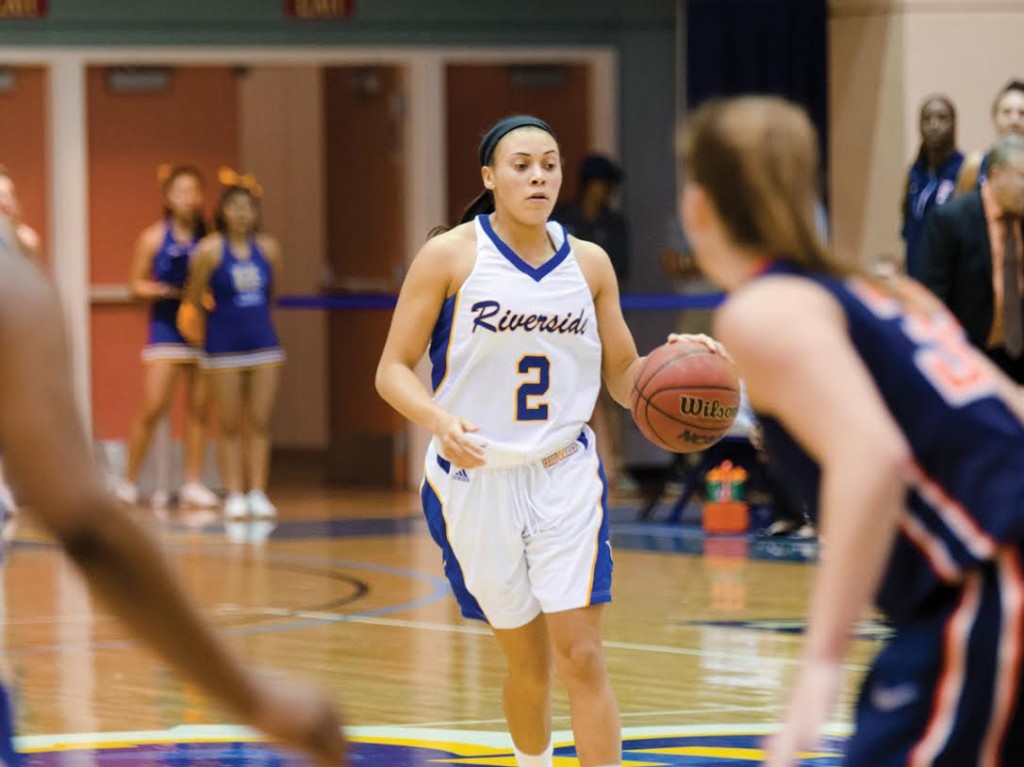
With our school currently participating in the Big West Conference, I see UCR’s student athletes sporting their blue, white and gold jerseys as they go off to their next game, possibly with homework in hand. In contrast to many UCR students, student athletes have two roles on campus: to study in academics and to engage in sports. Despite their dual role and the obligations accompanying both, the National Collegiate Athletic Association’s (NCAA) mission statement assures that student athletes are guided throughout their college career: “Student-athletic success on the field, in the classroom, and in life is at the heart of our mission.”
However, the lawsuit against NCAA by two former student athletes, Devon Ramsay and Rashanda McCants, reveals not only a hole in the sports organization’s conduct with academics, but also the paradox of student athletes’ roles.
Both Ramsay and McCants assert that the University of North Carolina at Chapel Hill (UNC) and NCAA were hypocrites in their promises to provide students a quality college education. Instead of an education, the two student athletes say they’ve only received a measly piece of paper written with the words, “college diploma.” Unfortunately, their case seems to be true. At UNC, classes were labeled as independent study, yet ironically involved no studying due to no syllabus, no practical assignments and no adequate tests. Such academic fraud even began as early as the 1980s with Dexter Manley, formerly the Washington Redskins’ defensive end, graduating from Oklahoma State University without being able to read. The fault should not be pressed onto student athletes, as former marathon swimmer and student athlete, Diana Nyad, recounts: “the hours at practice, on the road, on the trainer’s table, at banquets can be overwhelming … Even academically superior students would be hard put to miss that much school.”
With academic reform desperately needed in collegiate sports departments and the NCAA, a viable solution may be to invest in physical education majors. Now on the surface such a proposal may seem to just continue this strain of academic fraud. Many will imagine this proposal would involve majors like Basketball or Football in the College of Throwing Stuff or courses called “The Ball and You” with the curriculum merely a set of dates to practice free throws. These ridiculous notions are reserved for the “Space Jam” sequel — not in an actual college setting.
I understand that sports programs are always accused of receiving a greater amount of funds than other college programs — but critics need to understand the funds are not being used appropriately, as evidenced by the lack of constructive academic resources for student athletes. Colleges like UCR are implementing tutoring programs to aid their athletes, but more needs to be done. Big leaps like establishing sports-appropriate majors do not have to be done first. Such a leap would require fast planning and a lot of faith in a program that has no credential. Perhaps testing out a physical education minor could be the best route.
Already underway in universities’ sports and physical education departments, classes more focused on student athletes’ dual roles are being created, with the strong intent to not be fluff classes to earn credits but to teach student athletes skills they can use during and after their college career.
Here at UCR, Dio Saucedo, the student athlete leadership coordinator, teaches his “Sports Psychology” course, which covers topics that the everyday student athlete endures, such as “stress, anxiety, frustration, failure, what to do when you are out of sync or out of rhythm, what kind of mental strategies do you use to focus, recenter, back in the present.” While UCR students are provided many counseling or career resources tailored to their collegiate experience, Saucedo’s course is one of the few resources specifically meant for student athletes. While UCR students are able to pursue niche majors like history and administrative studies or biochemical engineering, student athletes are not able to pursue majors like kinesiology or physical education or sports psychology.
Such a solution would take a couple of years to accomplish, yet it is within these years that a physical education major could be perfected for UCR students. As opposed to a sports-specific major, a physical education major allows student athletes to seek opportunities after graduation that relates to their commitment to sports; however, the major gives a broader range of opportunity. A sports-specificmajor would only prepare students for opportunities in a niche field — playing sports professionally.
Proposing a minor is often the perfect testing stage for a proposed major. Faculty would not need to create a vast amount of classes, but instead only construct a few for students to take for the minor. This allows faculty to experiment with what is needed for the future major without hindering students’ overall college experience, or having them regret taking on a major that was not initially planned out.








